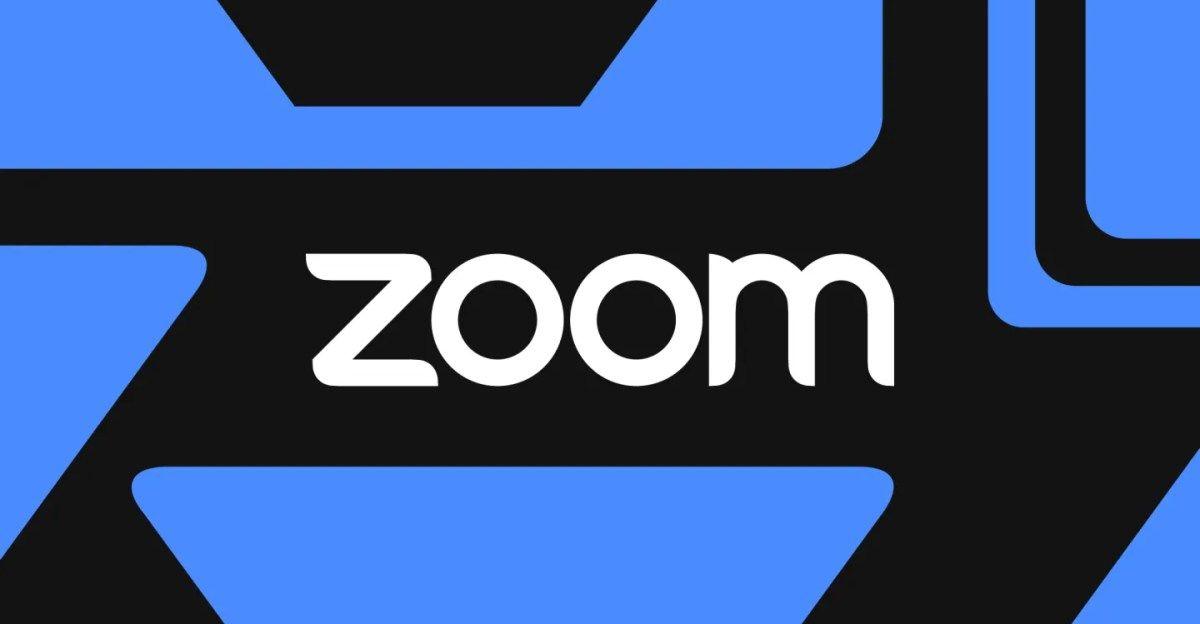Zoom Unveils AI-Powered Virtual Agent for Phone, Expanding its Enterprise AI Offerings
2 Sources
2 Sources
[1]
Zoom's new AI agent might mean you never need a human receptionist ever again
The no-code tool is trained from existing company docs and websites Zoom has lifted the wraps off Virtual Agent for Zoom Phone, allowing companies can now use a 24/7 AI concierge to replace or support existing receptionists. The AI agent promises to greet callers naturally, process requests and initiate next steps without any human intervention, helping to reduce missed calls and hold times. Available from launch in English, Spanish, French, German, Portuguese and Japanese (with more languages to come), Zoom says its Virtual Agent is capable of efficiently routing calls autonomously, getting customers one step closer to a resolution without the need for a human to pick up the phone. "By combining AI that can listen, understand, and take action with the reach of Zoom Phone, our concierge virtual agent provides seamless and personalized support to all callers," Zoom Chief Product Officer Smita Hashim explained. Zoom highlighted how companies can leverage the Virtual Agent's immense time-saving powers without any expertise thanks to the no-code setup - instead, they can simply train the agent by uploading existing documents or pointing to a website. "The result is a faster, more personalized, and more scalable experience for everyone," Hashim added. Some of the use cases highlighted by Zoom include booking appointments in healthcare, confirming stock and answering product questions in retail and providing updates in financial services. At the same time, Zoom added new agentic AI capabilities to its AI Companion feature, including a tool that handles meeting scheduling by finding suitable times, coordinating invites, tracking responses and suggesting alternatives. In the press release, the company noted that AI Companion now goes even further to "[give] teams more time to focus on the discussion itself, not the logistics."
[2]
Zoom extends AI concierge to telephony amidst sluggish growth
Zoom's expansion of its Virtual Agent capabilities to include telephony represents the latest attempt by the collaboration platform to broaden its enterprise footprint - and further embed agentic AI capabilities - as growth remains stubbornly modest. The company's announcement of a 24/7 AI concierge service for Zoom Phone, alongside new scheduling automation and a centralized content hub, signals CEO Eric Yuan's continued push to transform Zoom from a video conferencing tool into what he terms an "AI-first work platform." The timing of the new product announcements comes as Zoom faces competitive pressure from Microsoft Teams and other enterprise collaboration tools. Recent financial results show total revenue growth of just 2.9% year-over-year, highlighting the challenge of maintaining momentum in the post-pandemic landscape where initial explosive adoption has given way to buyers often taking the path of least resistance and opting for vendors that already make up a significant part of their technology stack. The strategy appears to center on the hope that by owning the conversation layer across video, telephony, and chat, Zoom can gradually capture more enterprise workflows through AI-driven automation (a strategy we've seen play out across other vendor propositions too). Whether this approach can drive sustained growth acceleration and see Zoom break the stranglehold of more embedded vendors remains to be seen, particularly given Microsoft's aggressive bundling of Teams with its broader Office suite. The Zoom Virtual Agent concierge, now integrated with Zoom Phone, goes beyond traditional AI chatbots by incorporating what the company (and everyone else) calls "agentic capabilities" - to not just route calls but take specific actions on behalf of callers. For instance, Zoom states that callers can book appointments, check order status, or inquire about product availability through natural conversation. Smita Hashim, chief product officer at Zoom, said: When someone calls your business, it should feel easy and personal from the first hello. By combining AI that can listen, understand, and take action with the reach of Zoom Phone, our concierge virtual agent provides seamless and personalized support to all callers. The technology supports multilingual conversations in six languages initially, with additional languages planned. The vendor added that administrators can deploy the service using a no-code configuration, training the system by uploading documents or directing it to company websites. Zoom has also introduced sector-specific applications that reveal its broader ambitions. For example, it claims that healthcare organizations can route calls to appropriate departments and enable after-hours appointment booking. Retail businesses can handle product inquiries and check inventory down to specific store aisles. Manufacturing companies can capture service requests and guide troubleshooting processes around the clock. Financial services firms can gather caller information and either resolve requests immediately or connect clients to advisors with full context. These use cases suggest Zoom is targeting the routine but resource-intensive interactions that consume significant human resources across various industries - if effective, the ability to offer these services 24/7 through agentic AI could mean measurable returns for organizations (if it works as stated). Scheduling automation tackles persistent pain point In what might be an additional appealing feature for users, Zoom also announced enhanced agentic scheduling capabilities for AI Companion that aim to reduce, or get rid of entirely, the back-and-forth typically required to coordinate meetings. The system analyzes calendar availability, time zones, and out-of-office notices automatically, then handles the entire coordination process independently once a preferred time is selected (sign me up!!). AI Companion reaches out to invitees directly, sends meeting requests, and monitors responses in real-time. If proposed times become unavailable, Zoom states that it immediately suggests alternatives without requiring manual intervention. This end-to-end automation, if works as stated, could represent a significant advancement over existing scheduling tools that often require multiple rounds of communication. The launch of Zoom Hub also introduces a centralized workspace for managing Zoom-related content, consolidating meeting recordings, summaries, documents, whiteboards, and clips in one location. These announcements reflect Zoom's broader shift from its pandemic-era video conferencing solution to a more comprehensive collaboration platform. The company's focus on agentic AI - systems that can take action rather than simply provide information - aligns with what many other vendors in the market are aiming for, and what buyers are seeking out. By targeting use cases that potentially deliver significant ROI (24/7 call handling) and/or user frustration (scheduling calendar invites), Zoom is hoping to gain traction from those growing AI budgets. However, the execution of this strategy faces significant hurdles. Zoom is entering markets traditionally dominated by contact center vendors and telecommunications providers with established customer relationships and specialized expertise. The company's continued expansion into telephony puts it in direct competition with dedicated providers who have spent years developing sophisticated AI-driven customer service capabilities. Microsoft continues to present Zoom's biggest competitive challenge, bundling collaboration tools aggressively whilst leaning into its broader enterprise relationships. The software giant's integration of Teams across its Office suite creates switching costs that Zoom must overcome through showing superior functionality or cost advantages. Zoom's enterprise revenue growth of 5.9% year-over-year in the most recent quarter was respectable but hardly the acceleration needed to justify premium valuations. The number of customers contributing more than $100,000 in trailing 12-month revenue grew 8% year-over-year, indicating some success in landing larger enterprise deals, but overall momentum remains modest. Yuan's confidence in the AI-first approach will be tested as organizations begin implementing and scaling these capabilities. The vendor needs to demonstrate not just impressive technology but measurable productivity gains and cost savings compared to point solutions from established providers.
Share
Share
Copy Link
Zoom introduces a new AI-powered Virtual Agent for Zoom Phone, offering 24/7 AI concierge services to replace or support human receptionists. This move, along with other AI enhancements, aims to transform Zoom into an "AI-first work platform" amidst competitive pressures and sluggish growth.
Zoom Introduces AI-Powered Virtual Agent for Phone
Zoom, the popular video conferencing platform, has unveiled a new AI-powered Virtual Agent for Zoom Phone, marking a significant step in its evolution towards becoming an "AI-first work platform"
1
. This latest offering aims to provide businesses with a 24/7 AI concierge service, potentially replacing or supporting human receptionists while addressing the challenges of missed calls and long hold times1
2
.
Source: diginomica
Key Features and Capabilities
The Virtual Agent for Zoom Phone boasts several impressive features:
- Multilingual Support: Available in English, Spanish, French, German, Portuguese, and Japanese at launch, with plans to expand to more languages
1
. - Autonomous Call Routing: The AI agent can efficiently route calls without human intervention, bringing customers closer to resolution
1
. - No-Code Setup: Companies can easily train the agent by uploading existing documents or pointing to their website, making it accessible even without technical expertise
1
. - Agentic Capabilities: The AI goes beyond traditional chatbots by taking specific actions on behalf of callers, such as booking appointments or checking order status
2
.
Industry-Specific Applications
Zoom has highlighted various use cases for the Virtual Agent across different sectors:
- Healthcare: Booking appointments and routing calls to appropriate departments
2
. - Retail: Answering product questions and confirming stock availability
1
2
. - Manufacturing: Capturing service requests and guiding troubleshooting processes
2
. - Financial Services: Gathering caller information and connecting clients to advisors with full context
2
.

Source: TechRadar
Enhanced AI Companion Features
In addition to the Virtual Agent, Zoom has introduced new agentic AI capabilities to its AI Companion feature:
- Automated Meeting Scheduling: The AI can find suitable times, coordinate invites, track responses, and suggest alternatives
1
2
. - Zoom Hub: A centralized workspace for managing Zoom-related content, including meeting recordings, summaries, and documents
2
.
Strategic Implications and Market Challenges
Zoom's expansion into AI-driven services comes at a crucial time for the company:
- Competitive Pressure: Facing stiff competition from Microsoft Teams and other enterprise collaboration tools
2
. - Sluggish Growth: Recent financial results show only a 2% year-over-year revenue growth
2
. - Market Positioning: Zoom aims to capture more enterprise workflows through AI-driven automation, positioning itself as more than just a video conferencing tool
2
.
Related Stories
Industry Expert Insights
Smita Hashim, Chief Product Officer at Zoom, emphasized the importance of personalized customer interactions:
"By combining AI that can listen, understand, and take action with the reach of Zoom Phone, our concierge virtual agent provides seamless and personalized support to all callers."
1
2
Challenges and Future Outlook
While Zoom's AI-driven strategy shows promise, it faces significant hurdles:
- Established Competitors: Entering markets dominated by contact center vendors and telecommunications providers with existing customer relationships
2
. - Microsoft's Dominance: The integration of Teams across Microsoft's Office suite creates substantial switching costs for potential Zoom customers
2
.
As Zoom continues to evolve its offerings, the success of its AI-first approach will largely depend on its ability to deliver measurable returns for organizations and overcome the challenges posed by deeply embedded competitors in the enterprise collaboration space.
References
Summarized by
Navi
Related Stories
Zoom Unveils AI Companion 2.0: Transforming Meetings with Agentic AI Capabilities
18 Mar 2025•Technology

Zoom Enhances AI Companion with Agentic Capabilities and Third-Party App Integration
09 Jul 2025•Technology

Zoom Unveils AI-Powered Features: Photorealistic Avatars, Cross-Platform Integration, and Intelligent Meeting Management
17 Sept 2025•Technology

Recent Highlights
1
ByteDance Faces Hollywood Backlash After Seedance 2.0 Creates Unauthorized Celebrity Deepfakes
Technology

2
Microsoft AI chief predicts artificial intelligence will automate most white-collar jobs in 18 months
Business and Economy

3
Google reports state-sponsored hackers exploit Gemini AI across all stages of cyberattacks
Technology





